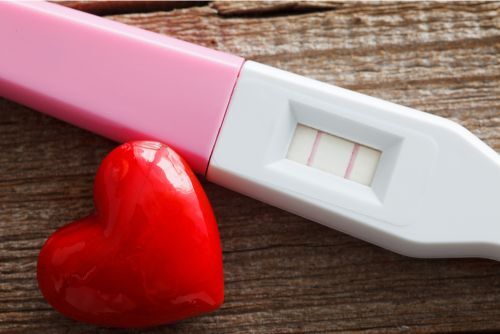Introduction
Pregnancy is often confirmed with a simple home urine test, which can be a quick and accessible way to check for that big “yes.” However, for those seeking more definitive answers—especially in early stages or under special medical circumstances—a pregnancy blood test can offer greater accuracy and insights.
Unlike over-the-counter (OTC) urine tests, pregnancy blood tests are performed in medical settings and can detect pregnancy even before a missed period. But is a blood test truly better than a urine test? How does it work, and when is it used? This article explores the types of pregnancy blood tests, when they are recommended, how they compare in accuracy, and whether they might be the right option for you.
Types of Tests
There are two main types of pregnancy blood tests: qualitative hCG tests and quantitative hCG tests. Both are designed to detect the presence of human chorionic gonadotropin (hCG)—a hormone produced shortly after a fertilized egg attaches to the uterine lining.
1. Qualitative hCG Test
- What it does: Confirms whether or not hCG is present in the blood.
- Result: Simple “yes” or “no” to pregnancy.
- Sensitivity: Can detect hCG levels earlier than most urine tests, usually 6–8 days after ovulation.
- Use case: Early confirmation of pregnancy or when urine tests are inconclusive.
2. Quantitative hCG Test (Beta hCG)
- What it does: Measures the exact level of hCG in the blood.
- Result: Provides a numerical value (e.g., 150 mIU/mL).
- Sensitivity: Can detect extremely low levels of hCG—often less than 5 mIU/mL.
- Use case:
- Monitoring the progression of pregnancy
- Identifying potential complications (e.g., miscarriage, ectopic pregnancy)
- Tracking hCG trends over time (serial testing)
- Evaluating pregnancies achieved via IVF or fertility treatments
These blood tests must be conducted in a clinical laboratory or doctor’s office, often with results available within a few hours to a couple of days.
When It’s Needed
While home urine tests are sufficient for many people, pregnancy blood tests are particularly helpful in specific situations. Your doctor may recommend a blood test if:
1. It’s Very Early in Pregnancy
- Urine tests may not yet detect low hCG levels, but a blood test can.
- Early confirmation is often crucial for people undergoing fertility treatment.
2. There Are Signs of Complications
- Symptoms like vaginal bleeding, intense abdominal pain, or dizziness might warrant a blood test to check hCG levels.
- In an ectopic pregnancy, hCG levels may rise abnormally slowly.
3. To Monitor Pregnancy Progress
- Serial quantitative hCG tests can assess whether hormone levels are rising appropriately (they should roughly double every 48–72 hours in early pregnancy).
- Used to confirm viability of the pregnancy in the first trimester.
4. After a Miscarriage or Abortion
- Blood tests can track declining hCG levels to ensure the body has cleared the pregnancy tissue.
- Helps rule out retained products or ongoing ectopic pregnancy.
5. In Special Medical or Fertility Cases
- Patients using assisted reproductive technologies often require regular blood tests.
- High-risk pregnancies or those with prior complications might also need more frequent testing.
Accuracy Comparison
So how does a pregnancy blood test compare to a urine test in terms of accuracy? Here’s a breakdown:
Detection Window
- Blood Test: Detects pregnancy 6–8 days after ovulation (before a missed period).
- Urine Test: Most accurate 1 week after a missed period.
Sensitivity
- Blood tests detect much lower levels of hCG (as low as 5 mIU/mL).
- Urine tests usually detect hCG levels starting at 20–25 mIU/mL or higher.
Quantitative Information
- Blood tests provide numerical values, giving a clearer picture of pregnancy progression.
- Urine tests give binary results (pregnant or not).
Reliability
- Both types of tests are over 99% accurate when performed correctly.
- However, blood tests are more precise, especially in borderline cases.
Speed and Convenience
- Urine tests are faster and can be done at home.
- Blood tests require a clinic visit and may take several hours to 1–2 days for results.
Conclusion
A pregnancy blood test offers unmatched sensitivity, precision, and early detection when confirming a pregnancy or monitoring it closely. It’s particularly valuable in high-risk situations, early pregnancies, and cases requiring detailed hormone level tracking. While it’s not always necessary for everyone, it is considered more accurate and informative than a home urine test.
However, convenience matters too. For many, a home urine test is sufficient to confirm a pregnancy, followed by a routine visit to the doctor. If you have concerns, symptoms, or need early answers, a blood test is a powerful diagnostic tool that your healthcare provider can offer.
In short: urine tests are great for quick answers; blood tests are best for certainty.
FAQs:
What are the types of blood tests?
- Qualitative hCG (yes/no answer)
- Quantitative hCG (beta hCG) (measures exact hCG levels)
How early can it detect pregnancy?
As early as 6–8 days after ovulation, before a missed period.
Is it more accurate than urine tests?
Yes, it’s more sensitive and precise, especially in early pregnancy.
How soon are results available?
Usually within a few hours to 1–2 days, depending on the lab.
Why would a doctor order one?
For early detection, monitoring pregnancy progress, confirming miscarriage, or managing high-risk or fertility-related pregnancies.





